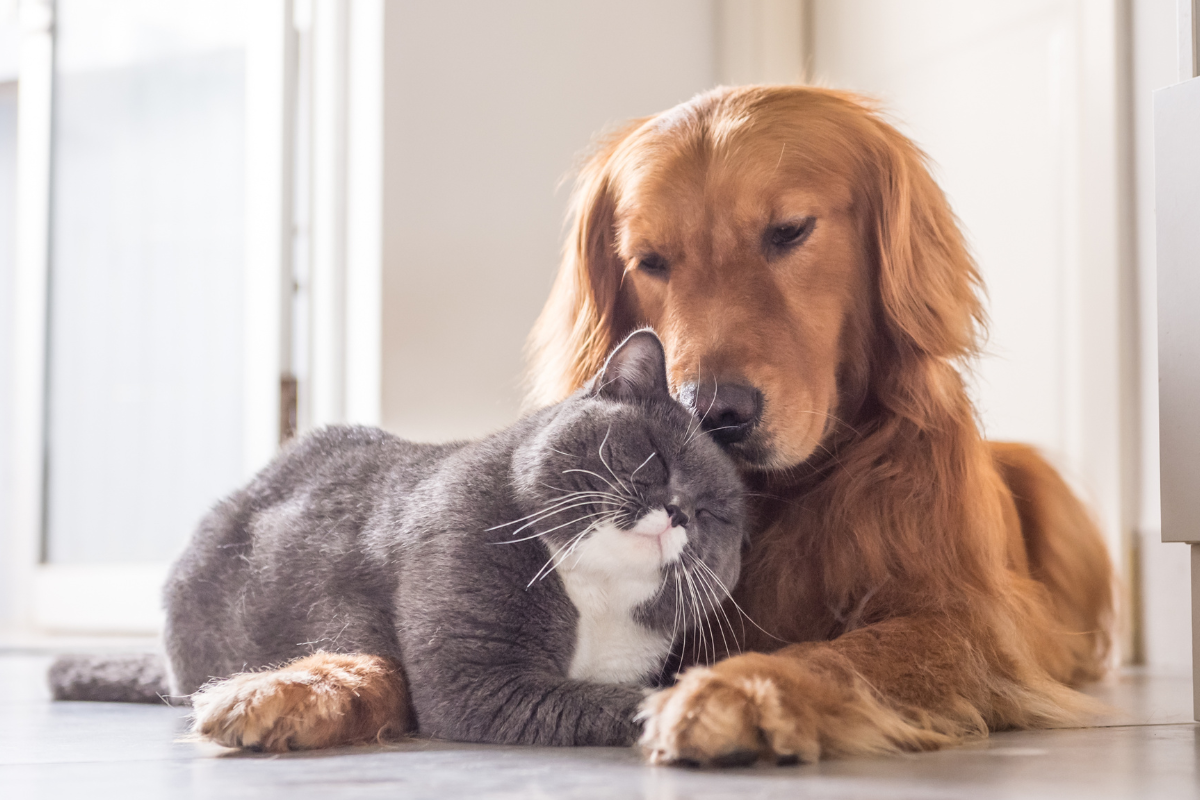
A study with over 16,000 dogs called the Dog Aging Project (1) offers insights into whether your dog will develop dementia. Cats develop dementia too but there are fewer studies documenting it as they tend to sleep a lot and activity changes are gradual and less noticeable than in dogs. That said, we can use what we've learned about dogs to help our cats as well.
Less active dogs are 6.47 times more likely to have signs of dementia. They are also more likely to be overweight. Another study found that dogs that were kept trim lived two years longer with later onset of age-related diseases such as arthritis (2). Cats fed a diet with added antioxidants fed a diet with added Omega-3 fatty acids lived significantly longer with better gastrointestinal health(3).
22% of dogs over 9 have signs of dementia. That number increases to 28% for dogs over 11 and a staggering 68% of 15 to 16 year olds.
Signs of dementia in dogs:
- Wandering, pacing
- Anxiety
- Confusion
- House soiling
- “Sundowner’s” nighttime restlessness and anxiety, sleep cycle off (sleep day/up at night)
- Reclusiveness
- Confusion
- Lack of engagement
- Barking for no reason, barking at night
- Ending up in corners or unusual locations
- Has a hard time locating treats when dropped on the floor
Signs of dementia in cats:
- Confusion/disorientation
- Vocalization especially at night
- House soiling/missing the box (also can be a sign of pain)
- Activity can vary from repetitive activity/restlessness to lethargy
- Lack of engagement
- Irritability
- Sundowner’s: sleep in day, awake at night and vocalizing/restless
- Lack of interest in playing or eating
- Decreased grooming, matted hair
How is it diagnosed?
Dementia is diagnosed mostly by history. An MRI can confirm changes in the brain consistent with what is similar to Alzheimer’s in humans.
What can help?
- Environment plays a big role in preventing dementia in your pets. Keep your dog trim and entertain once daily feedings or one large morning meal and a small evening snack. As they say “breakfast like a king, dinner like a pauper.”
- A healthy diet rich with antioxidants, Omega-3 fatty acids, medium chain triglycerides (MCT’s), and cognitive enrichment is best for your pet. Holistic Vet Blend is made with coconut oil which is rich in MCT’s and is rich in antioxidants.
- Excellent veterinary care
- Decrease stressors like pain and environmental stressors.
- Intervene if something seems off as soon as possible.
(1) Creevy KE, Akey JM, Kaeberlein M, Promislow DEL; Dog Aging Project Consortium. An open science study of ageing in companion dogs. Nature. 2022 Feb;602(7895):51-57. doi: 10.1038/s41586-021-04282-9. Epub 2022 Feb 2. Erratum in: Nature. 2022 Aug;608(7924):E33. PMID: 35110758; PMCID: PMC8940555.
https://rdcu.be/cU9CC
(2) A longitudinal study of the influence of lifetime food restriction on development of osteoarthritis in the canine elbow.
Vet Surg. February 2009;38(2):192-8.
(3) Effect of Nutritional Interventions on Longevity of Senior Cats
Int J Appl Res Vet Med. March 2006;4(1):34-50. 101 Refs
Carolyn J. Cupp 1, Clementine Jean-Philippe 2, Wendell W Kerr 1, Avinash R. Patil 3, Gerardo Perez-Camargo 4












